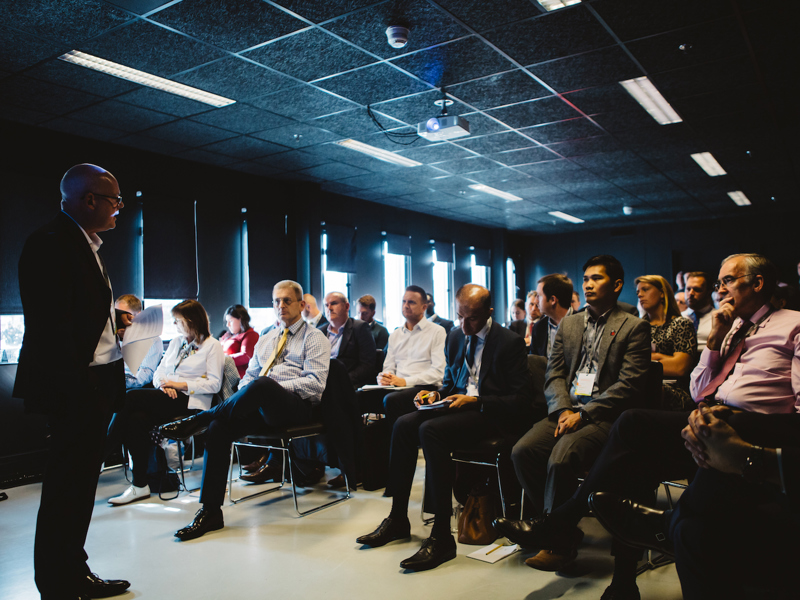This week we hosted an event at the social enterprise Good Hotel in London’s Royal Victoria Docks with that very aim in mind. We invited 70 guests from across government and industry to discuss social value and the importance of procuring from businesses who use their profits to create positive, social change.
The event was conceived as an extension of the work Amey has done over the last two years with Cabinet Office and industry on the Outsourcing Playbook. Together, we’ve come together as a sector to identify the challenges associated with delivering public services and agree the reforms that will set the conditions for healthier practices in future.
A critical area of this work is social value, and as a business we’ve made tremendous progress so far, particularly with social enterprises. In 2017, we joined the Buy Social Corporate Challenge, which saw us commit to spend £1bn with social enterprises along with group of other high-profile businesses. More recently, we doubled our annual spend with social enterprises to £2m and at our event this week I announced an ambitious four-year spending target with social enterprises of 5%, making Amey the first strategic supplier to do so.
I was delighted to be joined at the event by Claire Dove, the government’s Crown Representative for Voluntary, Charitable and Social Enterprises, who made a passionate case for working with social enterprises, citing the numerous economic and social benefits, both for suppliers and, crucially, local communities.
She outlined current government plans and said, "Social value and social enterprise are integral parts of the government's Civil Society Strategy, a key aspect of which is improving the diversity of public service supply chains. From next April central government departments will expand their use of the Social Value Act, meaning major procurements - including goods and works - will include social value, as appropriate, rather than just consider it. It's now over to our sectors to take up the opportunities that this will present us.”
I was also honoured to be joined by Kate Bull, Director of social enterprise Britain’s Bravest Manufacturing Company (part of the Royal British Legion Industries), which provides employment to ex-forces personnel and people with health conditions or disabilities. We have worked with RBLI for many years now and I’m proud to say that last year they were able to employ two full time employees purely through their contracts with our highways business, for which they manufacture road signs.
As I said in my speech, it’s vital that we view large business not as a barrier to SME and VCSE participation, but as a cause for good; a pathway for small businesses to access long-term income stream that enable them to lay strong foundations for future growth. Businesses such as Amey, with contracts spanning up to 25 years, are in a great position to provide just that.
But too often big business is blamed for holding social enterprise back, and perhaps historically that view is legitimate. Big business hasn’t done enough to open the door to social enterprise and hasn’t done enough to leverage their size and influence for the benefit of local communities. But that is changing, and the Outsourcing Playbook is a perfect example of that shift in perceptions.
My view is that if we want the diverse markets that the Outsourcing Playbook aims to deliver, then we must go beyond celebrating good practice and consider a minimum weighting for social value in public sector procurements. A minimum threshold would provide the clearest sign yet from government that suppliers must use their operations and supply chains as forces for good and be held to a higher standard if they want to deliver public services.
We made this argument in our response to Cabinet Office’s Social Value in Government Procurement consultation back in June and we will continue to make it, because the case for social value and for working with social enterprises is abundantly clear to us at Amey and we’re proud to be leading the way in this area. We only hope that other large businesses in our industry will follow suit and commit to similar pledges in future so that together we can show that procurement can be a real driving force for social change.
